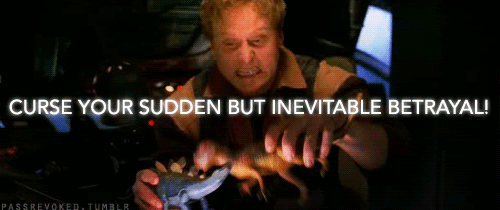Well, dear readers, I’d like to wish you a happy Friday, but the thing we all absolutely expected to happen, actually did – SB1159 has been signed into law by Governor Newsom – and no surprise there…

So what does that mean for all of living in the wonderful world of California workers’ compensation? Well, aside from having to read headlines titled “California Save Workers From Covid19” instead of “California Makes Employers General Insurers Against Epidemic Affecting Everyone,” we also have to be prepared to litigate these presumptions.
Earlier this week I prepared a post about the differences among the presumptions: rebuttable and conclusive as contemplated by the Evidence Code and “disputable” as has emerged from the imagination of the bill drafters. Well, employers and insurers need to be prepared to hit the ground running as unemployment benefits become exhausted, business slow-downs become business closures, and workers facing depleted savings suddenly remember that someone coughed in their general direction that one time they came into work.
At this point, my beloved readers, I will make a shameless promotional plug: your humble blogger has been presenting along with his learned colleagues at Gale Sutow – if you’d like us to present on SB1159 and strategies for addressing the presumptions, please shoot me an e-mail at your convenience.
Your humble blogger won’t get into the details here, but some general thoughts must be mentioned – COVID19 WC claims are not like ordinary claims. We all have those files where the employer didn’t timely report the injury to the insurer and now the defense team his three days to do an investigation before the 90 days run. This isn’t that scenario.
The period to investigate and deny isn’t 90 days – it’s either 30 or 45 depending on the circumstances. So everyone on the defense team has a job to do until SB1159 sunsets on January 1, 2023, and here it is:
- Brokers and Insurers: educate the employers in a matter that Israelis call “ackshav”;
- Employers: You have to be on the ball in both reporting COVID19 claims for possible “outbreak” status and also to allow the insurer and adjuster a chance to mount a defense – this isn’t one of those problems you can ignore like when an angry customer throwing a tantrum about you not honoring an expired 50 cent coupon threatens to say mean things about you online – a COVID19 claim goes to the top of the to-do list;
- Adjusters: Keep an eye on that denial timeline and figure out from first notice if the presumption is going to apply and what deadline you’re dealing with – 30 days or 45? Send out the file to your investigators and attorneys EARLY so we can engage in tracing and set up to challenge the presumption and/or the claim;
- Defense attorneys – we’ll have to move quickly. Is there a basis to deny the claim outright? If the reason to deny the claim isn’t apparent early on, can we do anything to “dispute” the presumption down the road?
Plenty of work to go around and plenty of action for all parties to take.
Remember, read readers – there’s a reason not to just brush this off and eat the claim. COVID19 has shown to interact with other conditions and have serious, long lasting effects. Sure, you can play the odds and assume that a positive diagnosis will clear up without residuals in two weeks, but what happens when your applicant can’t find work and has developed a compensable consequence psyche to leaving the house due to COVID19? What happens when the next study comes out confirming for us all that COVID19 results in permanent harm to the lungs and the nerves?
Chins up dear readers, but eyes open, and let’s get to work!
